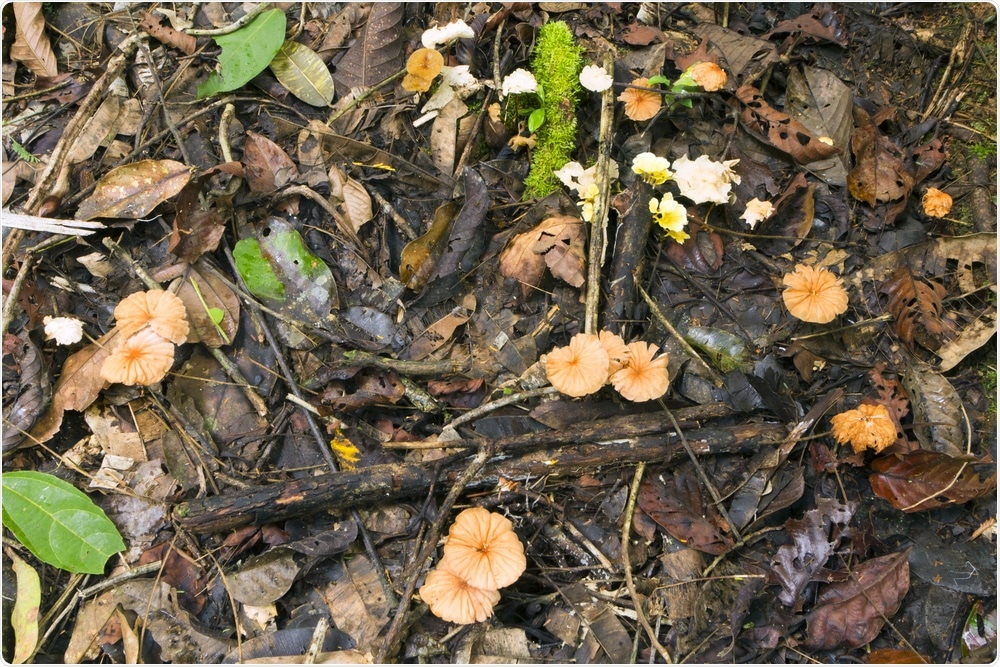The afterlife of plant matter plays a significant role in ecosystems, as a key processor and provider of key nutrients. The rate of decomposition for leaf litter, among other plant matter, heavily influences the health of animals and plants, and this rate is expected to significantly increase as Earth continues to warm. There is another factor that could hold impact these ecosystems even more than climate change: biodiversity.

Image Credit: Dr Morley Read/Shutterstock.com
An international team of researchers published a meta-analysis of 176 studies investigating the effect of diverse leaf litter decay on ecosystems around the world on Sept. 11 in Nature Communications.
"Biodiversity loss can alter ecosystem functioning; however, it remains unclear how it alters decomposition--a critical component of biogeochemical cycles in the biosphere," said paper author Akira S. Mori, associate professor in the Graduate School of Environment and Information Sciences at Yokohama National University.
We provide a global-scale meta-analysis to quantify how changes in the diversity of organic matter derived from plants, called litter, affect rates of decomposition."
They found that diversifying plant litter from single to mixed species increases the decomposition rate by 34.7%. It is projected that, in response to climate warming over the next 50 years, decomposition rates will increase by 13.6 to 26.4%.
"We found that the after-life effects of diversity to foster decomposition were significant, and of substantial magnitude, in different biomes including forests, grasslands and wetlands," Mori said.
Biodiversity changes cannot be solely viewed as a response to human influences, such as climate change, but it could also be, although less recognized, a non-negligible driver of future changes in biogeochemical cycles and climate feedbacks on Earth."
The roles of biodiversity have been largely ignored in the context of climate change mitigation and adaptation, according to Mori. In an effort to understand how biodiversity loss can alter ecosystem functioning, the researchers synthesized a comprehensive data set from 7,958 leaf litter comparisons across 2,453 different treatments reported in 176 studies.
"Our dataset and analysis are comprehensive by covering the broad range of climatic regions and extensive in considering many possible comparisons for decomposition rate between mixed and mono-species litter in different biomes," Mori said, noting the importance of understanding how the magnitude of these diversity effects compare to other decomposition regulators, such as climate.
"After accounting for many confounding factors, we found that, across all studies, increasing plant diversity significantly increased the rate of decomposition."
It was previously assumed that the effects of plant diversity on decomposition were not as strong as the effects on biomass production, but the researchers found that to be false.
We emphasize that incorporating the underexplored roles of biodiversity into the assessment of future changes in the biogeochemical cycles and climate feedbacks is critical in this era of global environmental changes. We aim to put biodiversity at the heart of nature-based approaches to solve many socio-environmental issues, including climate change."
Mori
According to Mori, further studies are needed to fully understand the roles of diverse plant communities for supporting naturally functioning ecosystems, but that this meta-analysis begins to bridge the gap in knowledge.
"The present study can inform the models needed to incorporate the unexplored roles of biotic interactions in determining carbon and nutrient flow through decomposer subsystems, which could be critical for improving future projections on climate feedbacks," Mori said.
This work was supported by the Ministry of the Environment, Japan, and the Ichimura Foundation for New Technology.